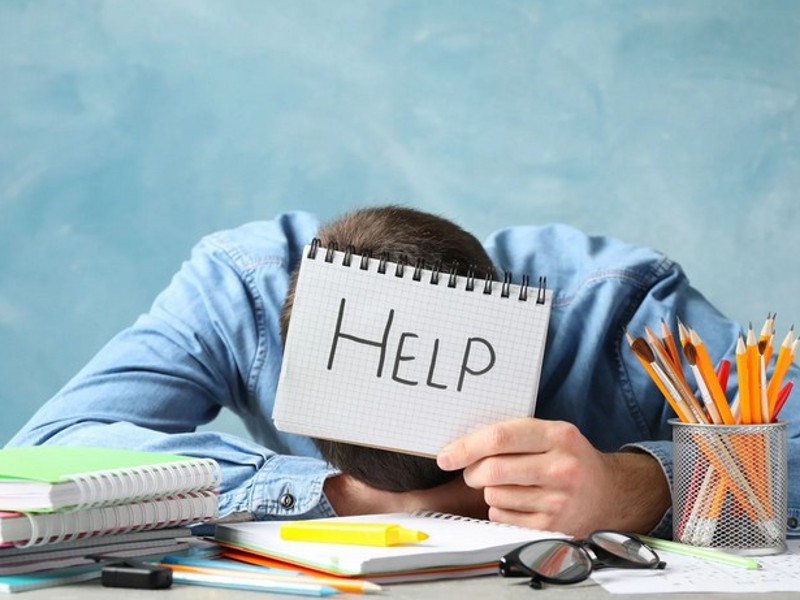Early Warning Signs of Burnout
Table of Contents
Modern life often feels like a high-speed treadmill that we can’t step off. Between demanding jobs, family responsibilities, and personal goals, we juggle countless tasks every day. While pushing ourselves to achieve more is often celebrated, the relentless pace can sometimes lead to a dangerous state—burnout.
Burnout at the very first sign should be recognized in order to conserve mental, emotional, and physical health. Let’s take a look at those signs and why early addressing of them makes all the difference.
1. Chronic Fatigue and Lack of Energy
One of the earliest signs of burn out is chronic exhaustion. Unlike the fatigue that goes away after a good night’s sleep, this type of exhaustion tends to linger. You might wake up feeling drained, struggle to stay alert during the day, or need to take naps quite often. The feeling tends to go beyond just being tired and into your mental energy as well. You might find that tasks you could once handle become impossible, and your body and mind are crying out for rest.

2. Low Productivity and Performance
Deterioration in work performance can be another indicator. You may find it hard to concentrate, have poor decision-making skills, or even make mistakes in the things you do. Sometimes, even the smallest project seems too big to handle, and you procrastinate or miss deadlines. This may be your body trying to raise a red flag for you, even though you are putting in many hours of work.
3. Emotional detachment and cynicism
Burn out can cause a depletion of physical energy, but it also erodes emotional well-being. People experiencing burn out are often disengaged from their work, family, or hobbies. A sense of apathy can then creep in, making what once were enjoyable activities into chores. In addition, cynicism or resentment can develop, especially toward coworkers, clients, or loved ones. This emotional disengagement serves as a protective mechanism that prevents further exhaustion but often damages relationships and job satisfaction.
4. Insomnia and Sleep Disturbances
Sleep is the cornerstone of health, but burn out often interrupts it. You might end up lying awake at night, unable to shut off anxious thoughts about work or personal obligations. Or, you may wake up at all hours and not be able to fall back to sleep. In the long run, a lack of quality rest piles up on other burn out symptoms and creates a vicious cycle.
5. Physical Symptoms and Frequent Illnesses
The psychological effect of burn out translates to your physical body. Headaches, stomachaches, and tensed muscles are common occurrences. Burn out can further weaken the immune system and make you more vulnerable to catching colds and other infections. These physical warning signs should never be brushed off, as they may indicate that your body is under too much stress.

6. Loss of Motivation and Passion
The other early warning sign of exhaustion is a loss of motivation. The fire that used to drive you to overcome obstacles and work towards achieving your goals starts to lose its glow. Things that excited or pleased you may start to feel meaningless. Inability to find purpose may lead to feelings of inadequacy and disillusionment, hence emotional exhaustion.
7. Neglecting Self-Care and Personal Needs
During progressive stages, self-care behaviors are more or less omitted.
Meals may be avoided, work or exercise, or such negative coping measures as turning to junk food or even alcohol. Neglect enhances energy depletion and worsens symptoms, therefore speeding the process of fatigue.
8. Heightened irritability and mood swings
Irritability is another red flag. Minor annoyances that once were trivial may now become unbearable. Mood swings, from depression and anger to frustration and hopelessness, are becoming more common. Such emotional shifts can strain personal and professional relationships, creating further stress for an already burdened mind.
9. Feeling Trapped or Hopeless
A sense of helplessness or being trapped frequently characterizes burnout. You feel as if regardless of the efforts made to work hard, things still do not change. A feeling that no amount of work brings change often breeds emotional withdrawal, more anxiousness, or depression. If one identifies and copes with these emotions through counseling or stress management sooner, they are saved.

10. Poor concentration, and problems in remembering.
Exhaustion impairs cognitive ability, and most of the time, makes one forgetful and irritable to concentrate. Often, you might be tempted to read the same line several times or get puzzled while having a conversation because of mental fogs created by fatigue. Frustration and inefficiency become your close friends for this reason.
How To Prevent Burnout Before It Strikes
Gradually severe exhaustion develops in many persons, and prevention at that stage is extremely important. Recognizing such signs like chronic fatigue, irritability, and emotional detachment makes it just a starting point. Preventing burn out from settling itself in actually requires proactive efforts.
1. Set Boundaries
Set firm work-life boundaries and learn to say no without guilt. Resist the temptation to overcommit. This can lead to stress and exhaustion, so prioritize what really matters and delegate as much as possible.
2. Make Rest and Leisure Non-Negotiables
- Engage in sleep, exercise, and leisure as essential activities.
- Exercise decreases the levels of stress hormones.
- Quality sleep rejuvenates both the mind and the body. Relaxation through books or music can help enhance mental clarity.
3. Seek Help
Don’t undermine emotional support. Reach out to trusted friends or family members or a counselor when needed. External help can soothe, counsel, and reassure.

4. Breaks
Small breaks during work enhance focus. Greater vacations allow one to unwind more profoundly. The respite from pressures at home allows the mind to unwind and be refreshed on coming back.
5. Practice Mindfulness
Engage in mindfulness activities like meditation, yoga, or deep breathing exercises. These techniques reduce stress, increase emotional resilience, and help you stay grounded.
6. Evaluate Goals
Unrealistic goals often fuel exhaustion. Assess whether your ambitions are achievable and make adjustments to ease pressure without sacrificing success.
Preventing fatigue requires a balanced lifestyle, self-awareness, and intentional efforts to protect your well-being.
Final Thoughts
Burnout is not overnight. It’s a slow process with warning signs often unnoticed until they become unbearable. Paying attention to your body, emotions, and mental state can lead you to burnout detection at its early stages. Don’t forget that the priority of self-care isn’t selfish; it is a must. Spending your time on your well-being today will give you a healthier and more balanced tomorrow.


















